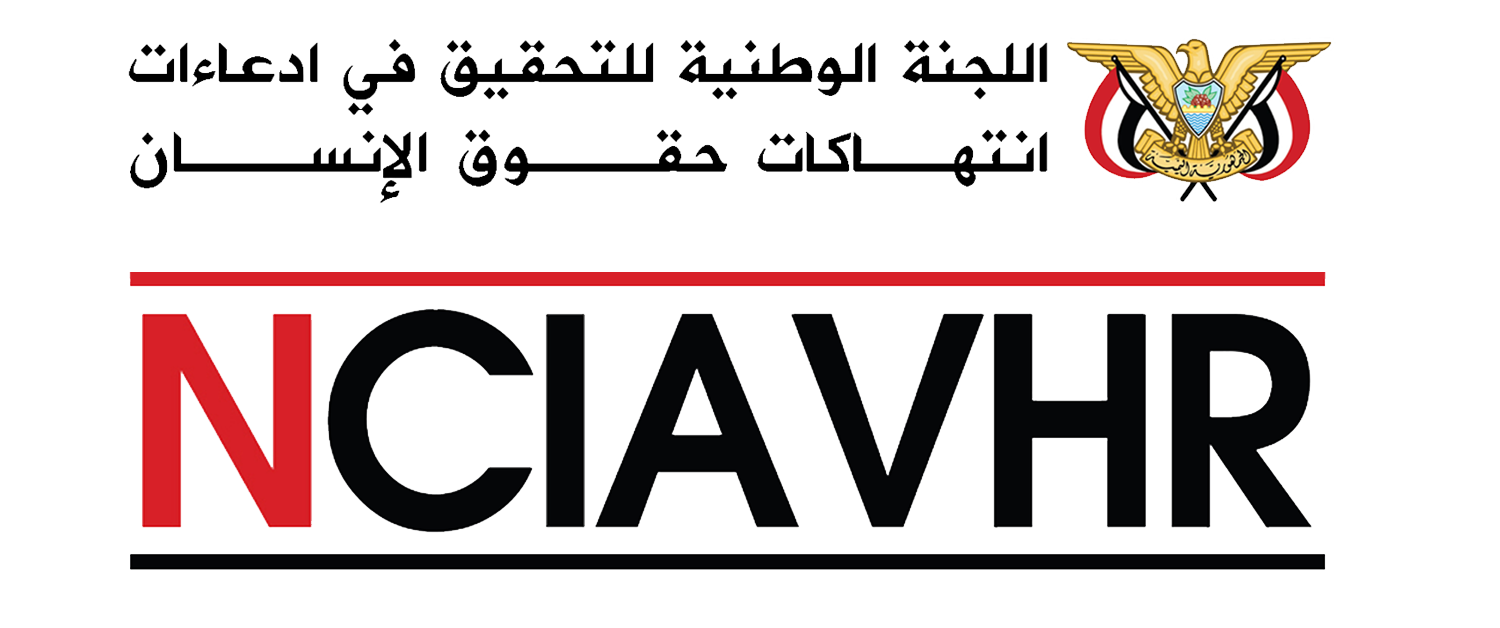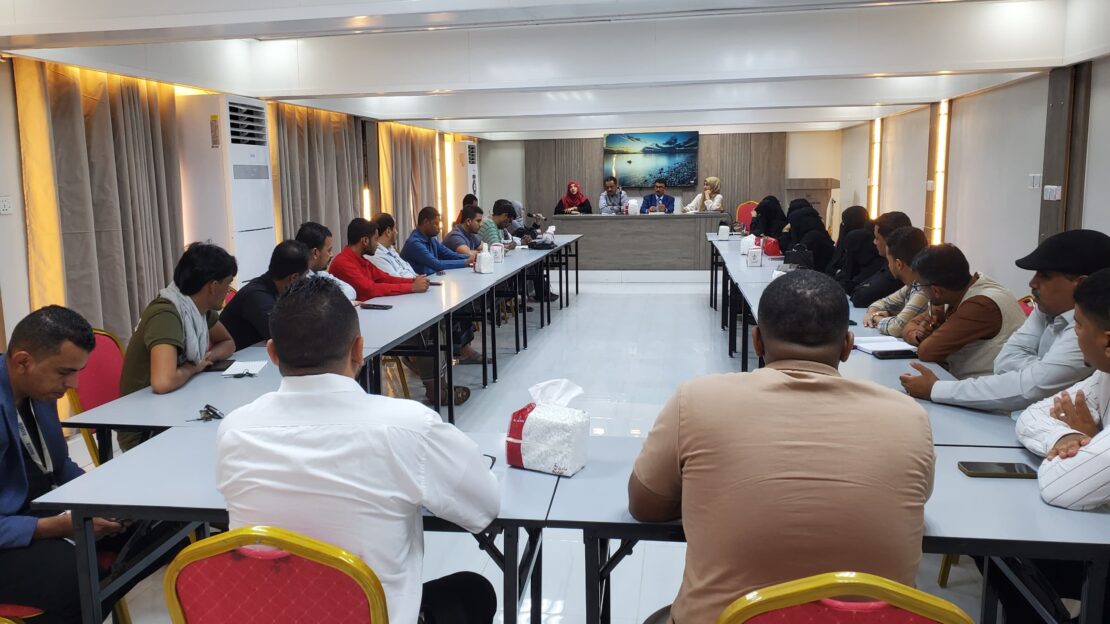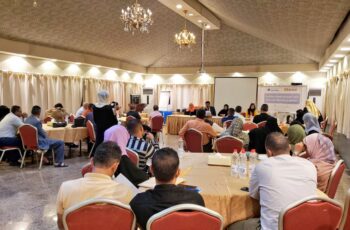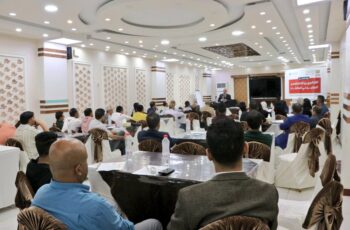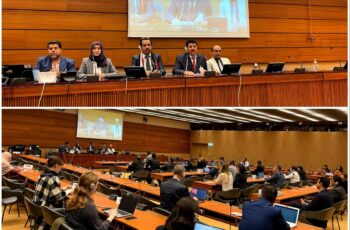NCIAVHR Discusses Complementary Roles in Addressing Human Rights Violations with CSOs in Hadhramaut
Mukalla | June 1, 2024
Today, the National Commission to Investigate Alleged Violations of Human Rights (NCIAVHR) held a consultative meeting with active civil society organizations in the fields of protection, empowerment, awareness, monitoring, and promotion of human rights in Hadhramaut governorate, as part of the Commission’s ongoing field visit to the governorate.
The meeting, which included the participation of 33 representatives from various organizations, was marked by the Vice-Chair of the Commission, Judge Hussein Al-Mashdali, who appreciated the crucial role of civil society in alleviating the humanitarian suffering of citizens. Mr. Al-Mashdali highlighted the Commission’s methodology of multi-faceted partnerships with civil society since its inception, ensuring access to victims, documenting damages they have suffered, and providing supportive services that help uphold human rights.
Judge Ishraq Al-Maqtari, one of the Commission members, reviewed the key outcomes of the previous meeting held last year, the recommendations made by the organizations, and the opportunities for continued cooperation, particularly in guaranteeing fair trials, justice, safe civil work environments, and strengthening efforts of various civil institutions.
In his speech, Ahmed Salem Badros, Director of the Social Affairs and Labor Office, praised the Commission’s efforts in directly engaging with civil society in Hadhramaut due to its significant role in improving conditions for many victims and survivors of violence, providing psychological and economic support, advocating for detainees, their right to legal assistance and justice, and ensuring perpetrators do not escape punishment.
Civil society organizations, in turn, presented the latest updates on human rights in the governorate and the impact of recent political, military, and economic events on the humanitarian and rights situation in Hadhramaut. They also discussed their roles in mitigating these impacts.
The meeting concluded with several recommendations aimed at improving the human rights environment and practices, including ensuring freedom of civil and trade union activities, expediting litigation processes, addressing issues in education and health rights, supporting the rights of people with disabilities, and combating discriminatory practices against women.
